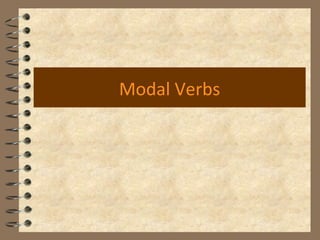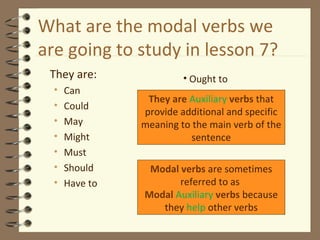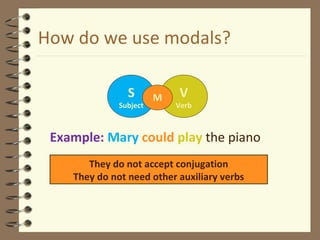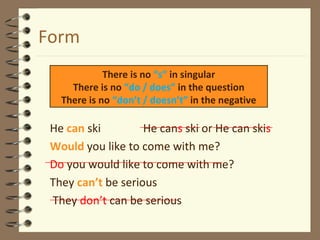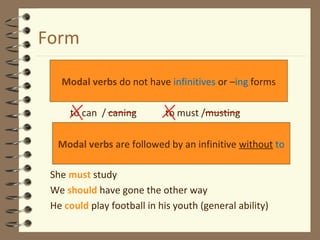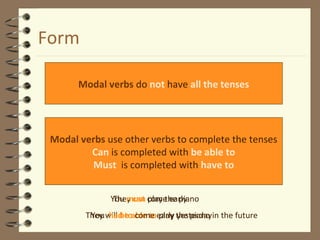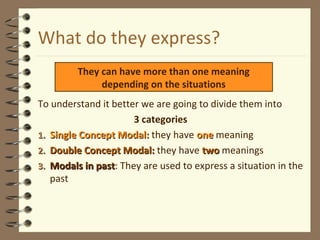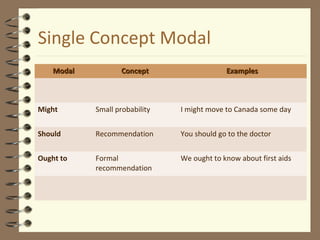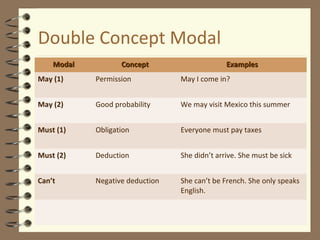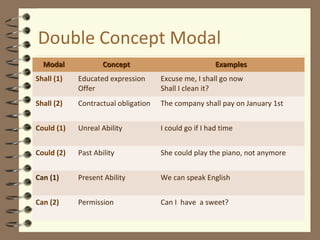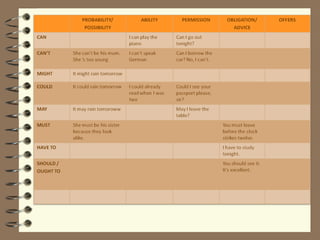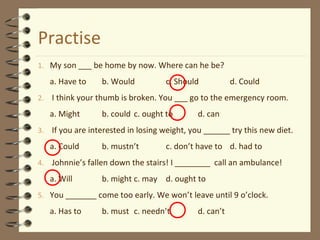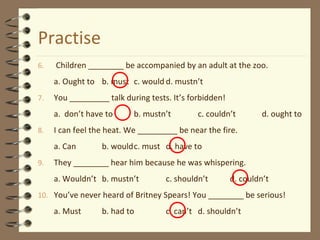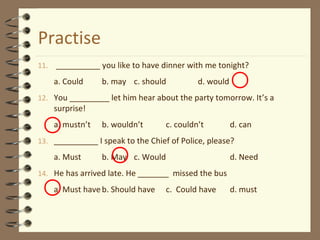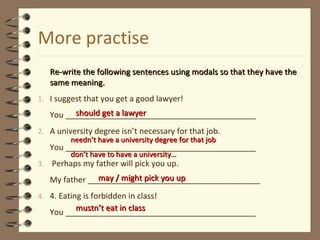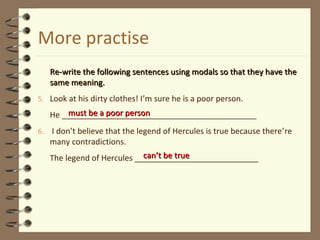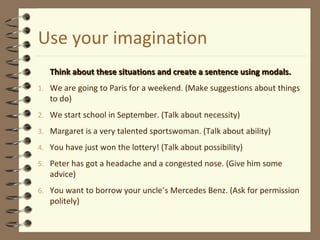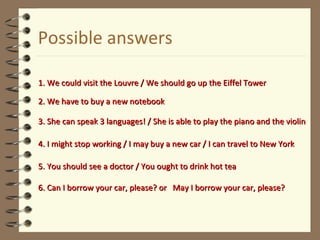This document discusses modal verbs and how they are used. It defines modal verbs as auxiliary verbs that provide additional meaning to the main verb of a sentence. The modal verbs covered are can, could, may, might, must, should, have to, and ought to. These verbs are divided into categories based on their meanings - single concept modals express one meaning, double concept modals express two meanings, and modals in the past are used to talk about past situations. Examples are provided to illustrate the different uses and forms of modal verbs. Exercises at the end test the reader's understanding and ability to use modal verbs correctly.
